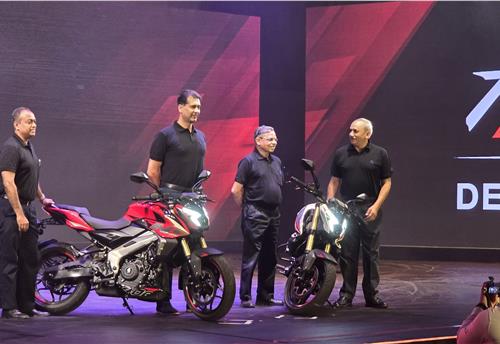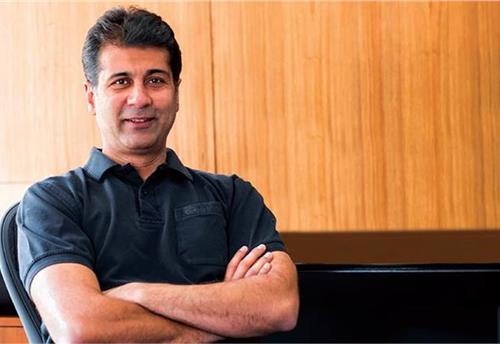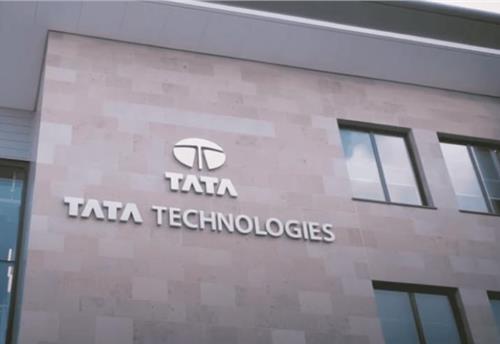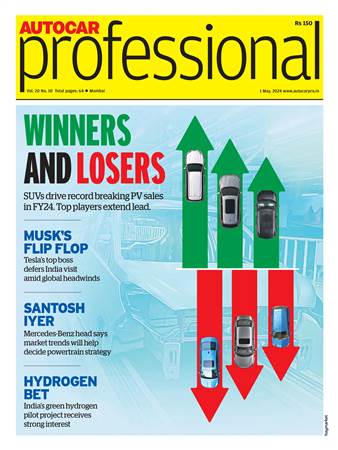Over-regulation has made automobiles 'unduly expensive' in India: Rajiv Bajaj
Rajiv Bajaj pointed out that BS VI and ABS regulations are the reasons for a "dramatic change" in price in the last few years.
Bajaj Auto's MD Rajiv Bajaj said that "overregulation" related to safety and emissions has made automobiles in India "unduly expensive" and called for a GST cut on entry-level motorcycles to make them more accessible in the Indian market.
Speaking at the Pulsar NS400Z launch on Friday at the company's Pune plant, Bajaj pointed out that BS VI and ABS regulations are the reasons for a "dramatic change" in price in the last few years.
"Before BS VI and ABS became compulsory, Pulsar 150 was Rs 71,000. Today the same motorcycle is Rs 150,000. The government has made automobiles in India unduly expensive with higher taxation and very high regulatory norms. That has made them so expensive," Rajiv Bajaj, Managing Director, Bajaj Auto said.
April 2019 onwards, the Government of India mandated that all two-wheelers with an engine capacity of 125 cc or more should have an Anti-Lock Braking System (ABS). Starting the very next year on April 1, 2020, India leapfrogged to the Bharat Stage 6 (BS6) emission norms, replacing the previous BS4 norms.
Clarifying that he doesn't mean that BS VI is not good for the country, Bajaj said that there's a discrepancy in taxation in comparable markets.
"Why is it that in India, for vehicles of the Aam Aadmi (common man) outside the metros, they have to pay a GST of 28%? But if you look at all the ASEAN countries, Latin America, Brazil, the typical equivalent of GST is around 8-14%. On one hand, we want regulation at the highest level in terms of emissions, on the other hand, GST is so high. The government should reconsider a GST of 18% and it should not be 28%," he said.
"Then on the safety front which makes ABS compulsory on a 150cc motorcycle in India which generates 12-14 horsepower, it's an overkill," he added.
Bajaj added that there was a significant (price) discontinuity a few years ago, due to regulations related to safety and emissions. "There was kind of a dramatic change in price which owes itself to the regulation. I have openly called this over-regulation of the market," he adds.
Referring to Marie-Antoinette (the queen of France during the French Revolution), he said," Are we going to tell our people to eat cake, too?" As the story goes, it was the queen’s response upon being told that her starving peasant subjects had no bread to eat, reflecting her poor understanding of their plight.
Bajaj says that Rs 1,00,000 is a lot of money for an average person. "We can mitigate this by lowering the running cost of the vehicle. That's why we have a two-pronged strategy of CNG for entry-level motorcycles and electric vehicles for scooters. From a consumer point of view, lower (price) is always better," he said.
Bajaj Auto is gearing up for the much-anticipated launch of its CNG-powered motorcycle on June 18, 2024.
RELATED ARTICLES
Bajaj Auto to build portfolio of 400 cc bikes with new Pulsars and Dominar
Pulsar – the most successful premium bike in India – that generates a value of Rs 14,000 crore for Bajaj Auto - has got ...
Bajaj closing gap on Honda, on verge of grabbing leadership in sports bike segment: Rajiv Bajaj
The two-pronged approach is at the core of Bajaj Auto’s plan to address a larger market through its products Pulsar and ...
Tata Technologies bags a dozen large deals in FY24, expects more in Q1
"We are currently engaged in several large deal discussions with existing and new customers and anticipate an uptick in ...





 03 May 2024
03 May 2024  3566 Views
3566 Views





 Autocar Pro News Desk
Autocar Pro News Desk 



